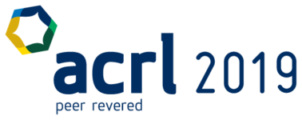Session Description:
Proactively managing your online information and reputation is important in todays social media-driven world. As students begin to navigate the complicated and stressful process of finding employment, professionalism challenges stemming from a poorly managed digital reputation should not hold them back. Situated within a disciplinary context, this paper will introduce participants to positive considerations and strategies for developing online professionalism instruction. Two theories for guiding instruction will be reviewed and first-hand experiences of creating an interactive online professionalism session targeted to undergraduate students will be shared.
